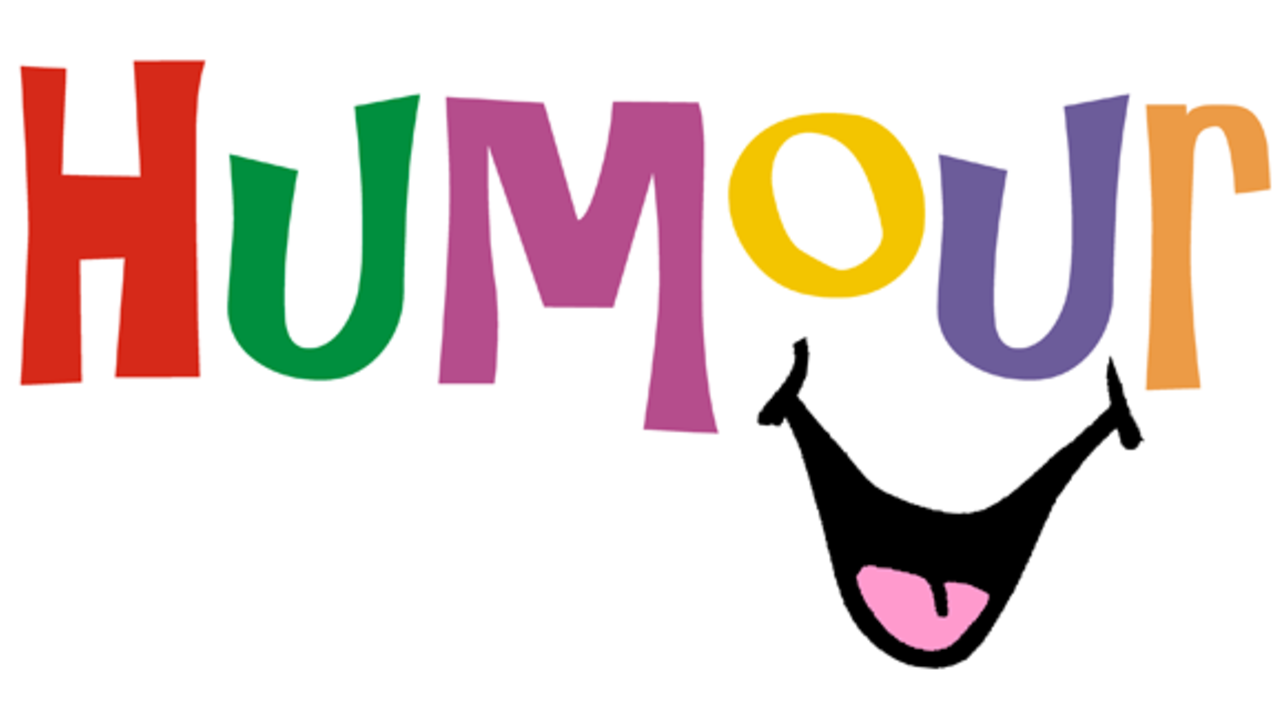Catching up with Karyn
Jokes! (Challenge Day 11)

“Got any good jokes?”
“Nah, I can never remember the punch line…”
That’s how the conversation usually goes when I ask people for a joke. And when I ask for a show of hands in my audience to see who can tell a joke, only about 1 in 100 will raise their hand (while the person sitting next to them looks on thinking, “You can’t tell a joke!”).
Why is it that the majority of us believe we can’t tell a good joke? Joke-telling is a skill that can be learned without a lot of blood, sweat, and tears. For most of us, it’s just not that important. At least until today…
Today’s challenge: Tell a joke! If you already know a good one, then you’re way ahead. If you don’t, then here’s what you need to prepare for today’s exercise.
First, find a joke that you find funny. (Knock-knock jokes, light bulb jokes, lawyer/doctor/engineer jokes, bar jokes—the list is almost endless!) There are tons of resources for jokes. You may have a joke book lying around the house (I have several I go to in a pinch but...
Laugh for No Reason (Day 8)

I believe that humor is abundant—at least most of the time. But I’ll admit there will be times when you can’t think of anything humorous to laugh about. What then? Laugh anyway.
Today’s challenge: Laugh for no reason.
Laughter is so good for us and provides so many benefits that if you don’t have a reason to laugh, you’ll want to laugh anyway. It’s okay if it’s not a real laugh. Even with a fake (simulated) laugh, you get loads of benefits: aerobic exercise for your heart, muscle relaxation, improved mood—just to mention a few. And frequently your simulated laugh may become a stimulated (or real) laugh.
We have neurons in our brains called mirror neurons. That’s why when we see or hear someone else laugh our brain messages us to laugh, too. Sitcoms often capitalize on this by putting a laugh track on their show—you hear the laughter and then laugh yourself—even if you didn’t find it that funny! Or you’ll be somewhere and hear someone else laugh—and you’ll start to giggle—even though...
Humor Visualization (Humor Challenge Day 5)
No doubt, there will come a time (chances are it has, already… and more than once!) that you’re stuck in a negative situation or with a negative person (the one whose goal in life is to be miserable, and whose mission is to bring down the rest of us with them!). When that occurs, one technique that you can practice is humor visualization.
I once worked with an administrator who had a gift for making all around her unhappy. Whenever she attended a meeting, by the time it was over, somebody was sure to leave crying. As I was walking out of one such dismal meeting, a colleague came up to me, and in a voice dripping with sarcasm asked, “What were you smiling about in there? You two collaborating on some little scheme?” When I realized she was insinuating that somehow I was fraternizing with the enemy, I was shocked. I’d found the meeting painful. How could she think I’d been smiling? And then it dawned on me…
At the low point of the meeting, I slipped into humor visualization. I began im...
Be Silly! (30-Day Humor Challenge Day 3)

I’ve often wondered what holds people back from using humor. I think a lot of times it’s because people don’t want to look silly. The word “silly” comes from an Old English term that meant to be healthy, happy and prosperous. (Who wouldn’t want more of that?)
When I think of “silly” I immediately think Monty Python’s John Cleese and “The Ministry of Silly Walks.” It’s a classic. You might be surprised to know that John Cleese—one of the funniest men alive—does not consider himself to be particularly funny. In his “real life” he’s not “the life of the party.” But he has the confidence to do something silly for his own enjoyment, and the enjoyment of others.
So what do you think? Are you willing to overcome your fear of looking silly? (FYI: I've found no medically validated cases of anyone dying from embarrassment.) For some of you, this may stretch you a little outside of your comfort zone. But stay with me here, because the benefits will far outweigh any downside you might be imagini...
Read for Laughs! (30-Day Humor Challenge Day 2)

Welcome back to today’s 30-Day Humor Challenge. Humor is abundant if you look for it. One of the places I go to for humor is my library. I love books, and I have a huge collection of authors who are funny and insightful. Books by comedians are an obvious choice, like Ellen DeGeneres (My Point, And I Do Have One), Dennis Miller (Rants), or George Carlin (Brain Droppings).
There’s also humor from modern-day philosophers like Robert Fulghum in his book, All I Really Need to Know I Learned in Kindergarten, or how about a little sci-fi humor with books like All I Really Need to Know I Learned from Star Trek or The Hitchhiker’s Guide to the Galaxy.
Maybe you prefer something a little more classic like tales from Mark Twain (that other humorist from my hometown—Hannibal Missouri!).
I enjoy books from funny gal pals like Loretta LaRoche (Life is Not a Stress Rehearsal), Gina Barreca (It’s Not That I’m Bitter) and Mary LoVerde (Stop Screaming at the Microwave). These are just the tip of the ...
5 Fun Things You Can Do to Celebrate National Humor Month

 April is National Humor Month - great news if you're interested in finding health & wealth through laughter! Here are five fun ways to celebrate National Humor Month:
April is National Humor Month - great news if you're interested in finding health & wealth through laughter! Here are five fun ways to celebrate National Humor Month:
1. Movie Night: Host a Comedy Film Festival in your home, devoted to the movies that make you laugh the most. Here's a list of the American Film Institute's 100 Funniest Films for some classic laughs.
2. Phone a (Funny!) Friend: Remember the college roommate who could always crack you up? What about the co-worker you loved to laugh with before they moved on to a new job? Keeping your funny friendships alive has serious long-term mental and emotional health benefits. A touch base call or email is a simple way to put a smile on both of your faces!
3. Learn Laughter Yoga: Laughter is more than fun - it's exercise! Laughter yoga combines enjoying humor with basic moves to boost your circulation and energy while lowering your blood pressure and stress levels. Here's a simple exercise to get you started.
4. Scavenger Hunt! ...
Humor Resources for Nurses: Cartoons for Caption Contests

Looking for a fun way to boost morale in your health care facility? Caption contests are a great idea. Simply print out one (or more!) of the cartoons below and have your team members come up with their own funny captions. You'll be astonished what the talented (or twisted!) minds of your nursing staff can come up with.
As an incentive, you can offer Prizes of Incredible Value: I've found baked goods and Starbucks work very well indeed. Don't forget to share the best ones on social media: you can tweet them to me @funnynurse!




One Size Does NOT Fit All: 6 Low Tech Tips to Express Your Appreciation

After my piece on Grati-tweets and Grati-texts, I received an outpouring of emails, texts, and tweets from folks expressing their appreciation of me—wow! It felt great! One loyal reader, Deborah, told me how she’d sent a grati-text to a mentor who lived in another state. The mentor texted back how timely her message was. She’d had a difficult and emotional day and thanked her profusely for her thoughtfulness.
On the flip side, I received this response from a dear friend: “Dearest Karyn, I just wanted to let you know that I believe in the power of gratitude, certainly in the power of laughter and optimism, and HATED your suggestions!”
She went on to explain that she was not just low-tech, but NO-tech. She didn’t open e-cards, refused to text, and had no social media accounts—not one!
I LOVED her note! (It’s so awesome when your audience makes your segue for you!) And because one size does NOT fit all, here are 6 tips for showing your appreciation via good-old-fashioned low-tech techn...

